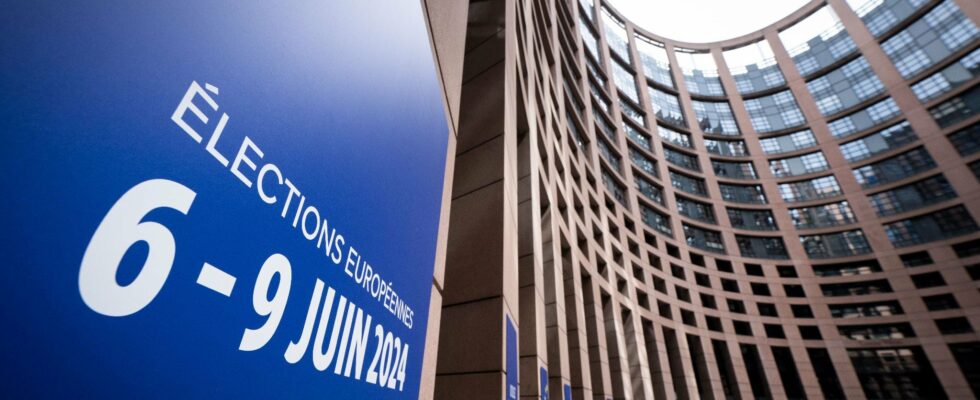Never before will so many ballots pile up at the polling stations. The French will be able to choose between 37 distinct lists during the tenth European elections which will take place from June 6 to 9, 2024. Beyond the traditional parties, several anti-capitalist and revolutionary lists, numerous environmentalist and decreasing lists, a pirate party or even a list for the liberation of Palestine will fight to obtain MEP seats, and to be able to participate in the debates and votes which will determine the future of Europe in the Brussels Parliament over the next five years.
Why so many lists? Part of the answer is based on very flexible eligibility conditions: the main criterion is to bring together 81 people, or the number of seats France has in Parliament. Unlike the presidential election, it is not obligatory to bring together 500 sponsorships from local elected officials from 30 different departments.
It is also possible for any French citizen, an adult, enjoying all their civil rights to run without the support of a political party, provided that they do not hold any other executive mandate, he does not work as a lobbyist nor is he the head of a consulting company. In France, the number of candidates exceeds 3,000 in each election, between two and three times more than Germany, Greece or Poland.
The French vote divided by the numerous possibilities
The very high number of lists nevertheless has a negative effect: the splitting of votes. Many “small” lists, that is to say which are not backed by a traditionally strong political structure, collect a particularly meager number of votes. In 2019, for example, 12 of the 34 lists had received fewer than 10,000 votes, and 26 of them had not exceeded 3% of the votes. However, under French law, a list must reach the electoral threshold of 5% of votes in order to obtain a minimum of four seats to be able to enter the European Parliament. In 2019, this led to 17% of the votes cast being ignored, or 4.5 million votes in France.
Faced with this fragmentation of the vote, a priority question of constitutionality (QPC) was even tabled after the 2019 election to lower this 5% threshold – which is for example located at 4% in Italy or absent in Germany. This was finally judged to be consistent with the Constitution by the legislator, who considers it necessary to “contribute to the emergence and consolidation of European political groups of significant size”, and will therefore be maintained this year. There are therefore few constraints on running, but also little chance of obtaining seats. Ultimately, only six lists crossed this threshold during the last election. However, this year, the “small” lists are even more numerous.
A plethora of small lists
In the polling stations, the French will obviously find the lists backed by the most important French parties. Like the list of the presidential majority (which notably brings together Renaissance, Modem, Agir, and Horizon) led by the president of the third European group “Renew” but very little known in France, Valérie Hayer. But also those of the Republicans led by François-Xavier Bellamy; of the Place Publique Socialist Party led by Raphaël Glucksmann; of France Insoumise, headed by Manon Aubry; or even communists.
In addition to the EELV environmentalist list carried by Marie Toussaint, the 2024 Europeans have numerous lists placing ecology at the center of their fight, via different approaches: nuclear, renewable, degrowth, compromise… Pierre Larrouturou, currently a MEP on the PS-Place Publique list, aims this year to be re-elected under a new environmentalist list. There are also several far-right lists: that of the National Rally led by Jordan Bardella, the Reconquest list of Marion Maréchal, or the Les Patriotes list led by Marine Le Pen’s former right-hand man, Florian Philippot.
Then follow a multitude of “small” lists, most credited at between 3% and a few tenths of a percentage: that of the animalist party, the Free Palestine list, the Common Language Esperanto list, Hadama Traoré’s “suburbs” list , the one dedicated to The Defense of Children, or the Pirate Party. Or that of the sovereignist François Asselineau who advocates Frexit, that is to say the definitive exit of France from Europe.
